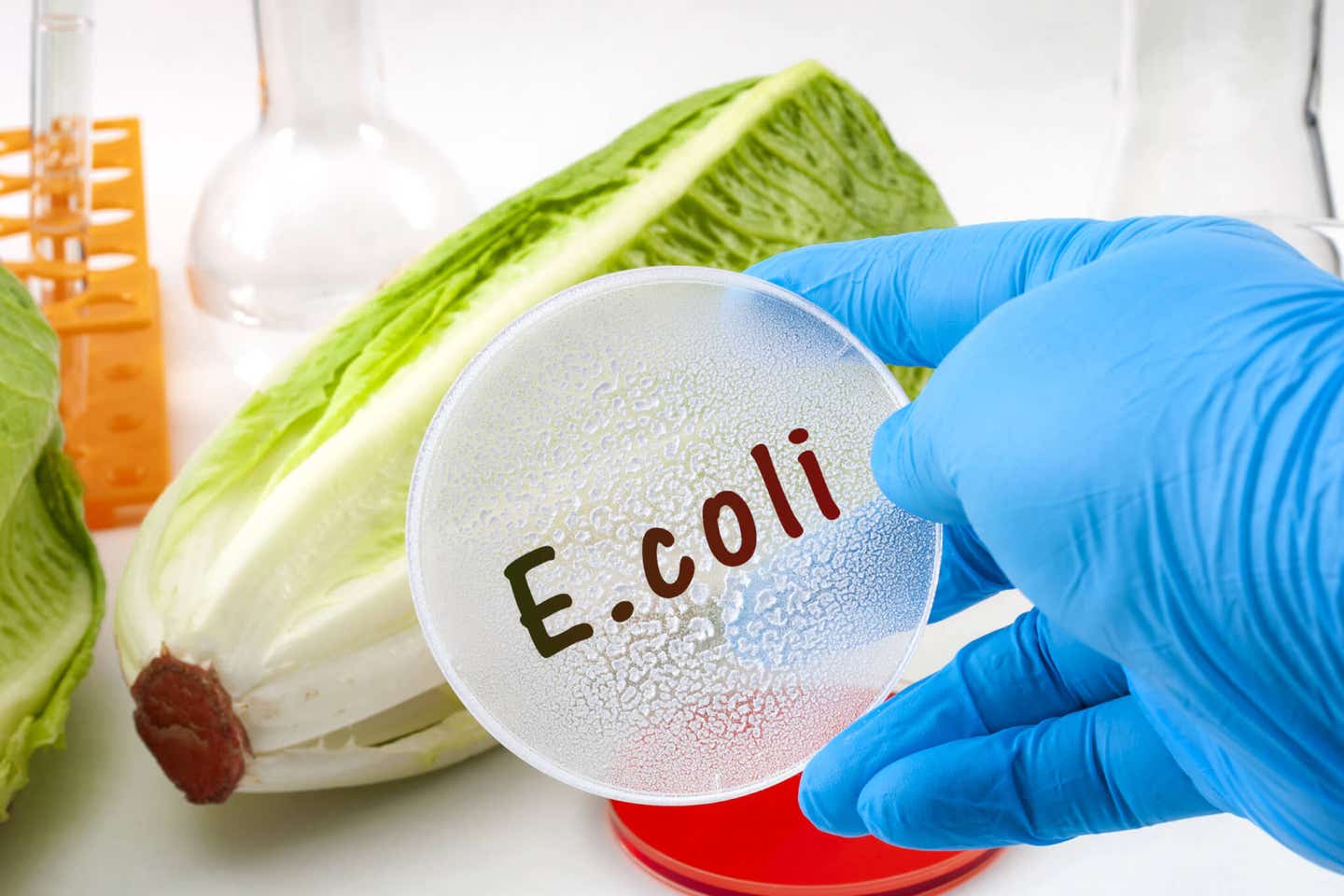Researchers reveal easy tip for keeping vegetables free from E. coli
Leafy greens like lettuce, spinach, kale, and collards are essential for a healthy diet, providing dietary fiber and various nutrients

Leafy greens like lettuce, spinach, kale, and collards are essential for a healthy diet, providing dietary fiber and various nutrients. However, they can also harbor harmful pathogens, particularly E. coli.
A recent study from the University of Illinois Urbana-Champaign and published in Food Microbiology, sheds light on factors affecting E. coli contamination on five different leafy greens: romaine lettuce, green-leaf lettuce, spinach, kale, and collards.
“We are seeing a lot of outbreaks on lettuce, but not so much on kale and other brassica vegetables. We wanted to learn more about the susceptibility of different leafy greens,” explained Mengyi Dong, lead author of the study and now a postdoctoral research associate at Duke University. Dong conducted this research as part of her doctoral studies in the Department of Food Science and Human Nutrition (FSHN) part of the College of Agricultural, Consumer and Environmental Sciences (ACES) at the University of Illinois.
The researchers exposed whole leaves from each of the five vegetables to E. coli O157:H7 and monitored the bacteria's behavior under various temperature conditions: 4°C (39°F), 20°C (68°F), and 37°C (98.6°F). They discovered that the likelihood of contamination was influenced by temperature and leaf surface properties, such as roughness and the natural wax coating.
“At room temperature or higher, E. coli grows very fast on lettuce, but if lettuce is refrigerated at 4°C (39°F), we see a sharp decline in the E. coli population. However, for waxy greens like kale and collard, we get the opposite results. On these vegetables, E. coli grows slower under warmer temperatures, but if it is already present, it can survive longer under refrigeration,” Dong noted.
Kale and collards, despite this, are generally less susceptible to E. coli contamination compared to lettuce. Additionally, these vegetables are often cooked, which effectively kills or inactivates E. coli, whereas lettuce is typically eaten raw. Washing lettuce helps but doesn't eliminate all bacteria due to their strong attachment to the leaf surface.
Related Stories
The study also compared whole leaves to cut leaves, finding that cut leaves, which release nutrient-rich vegetable juice, promote bacterial growth. However, spinach, kale, and collard juices exhibited antimicrobial properties that inhibit E. coli.
To explore this further, the researchers isolated juice from kale and collards and applied it to lettuce leaves. They found that this juice could serve as a natural antimicrobial agent, potentially useful as an antimicrobial spray or coating to control foodborne pathogens during both pre-harvest and post-harvest stages.
“We can’t completely avoid pathogens in food. Vegetables are grown in soil, not in a sterile environment, and they will be exposed to bacteria,” said Pratik Banerjee, a co-author of the study and associate professor in FSHN and Illinois Extension specialist.
Banerjee added that while it is challenging to eliminate pathogens entirely, adopting best practices in the food industry and food supply chain can significantly reduce risks. He emphasized the importance of following food safety guidelines, such as washing lettuce thoroughly, storing it in the refrigerator, and staying informed about food safety recalls.
The study highlights the complexity of foodborne illness prevention but also offers promising strategies for mitigating risks. With interest from the research community and federal agencies, efforts are ongoing to ensure the safety of the U.S. food supply. The USDA's stringent standards for food production contribute to maintaining a relatively safe food environment.
Banerjee and Dong emphasize that they do not want to discourage people from consuming fresh fruits and vegetables. These foods are crucial for a balanced diet. Instead, they urge consumers to practice good food safety habits to enjoy these nutritious foods safely.
This project was supported by the USDA Specialty Crop Block Grant Program (SCBGP) through the Illinois Department of Agriculture [grant numbers IDOA SC-22-20].
For more science news stories check out our New Discoveries section at The Brighter Side of News.
Note: Materials provided above by The Brighter Side of News. Content may be edited for style and length.
Like these kind of feel good stories? Get the Brighter Side of News' newsletter.
Joshua Shavit
Science & Technology Writer | AI and Robotics Reporter
Joshua Shavit is a Los Angeles-based science and technology writer with a passion for exploring the breakthroughs shaping the future. As a contributor to The Brighter Side of News, he focuses on positive and transformative advancements in AI, technology, physics, engineering, robotics and space science. Joshua is currently working towards a Bachelor of Science in Business Administration at the University of California, Berkeley. He combines his academic background with a talent for storytelling, making complex scientific discoveries engaging and accessible. His work highlights the innovators behind the ideas, bringing readers closer to the people driving progress.



